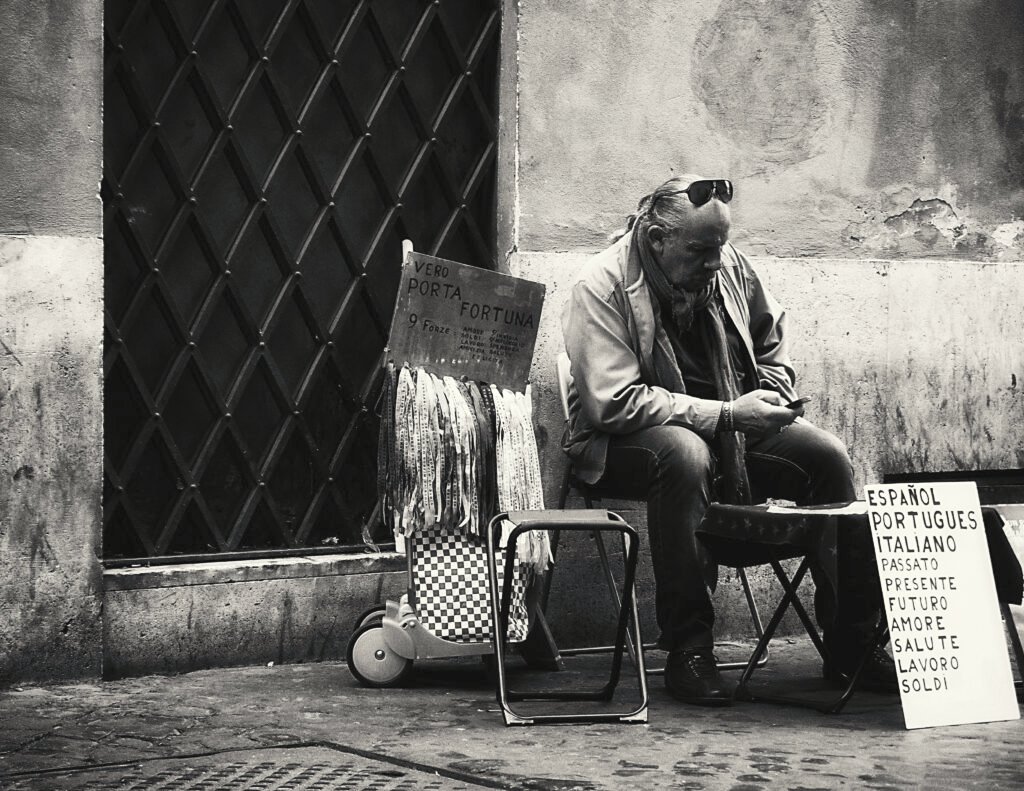
His cart was no bigger than a suitcase,
but it unfolded like a shrine—
lined with red horns,
tiny hands of Fatima,
ceramic eyes,
silver coins strung on red thread,
and curled metal cornicelli that glittered in the sun like fallen stars.
Gianni, they called him—Vecchio Gianni to the locals, “the lucky man” to the tourists.
Thin as a broomstick, hair like storm cloud wisps,
voice a permanent gravel from a thousand cigarettes and five languages’ worth of bargaining.
“Vero porta fortuna!” he called out, rolling the R like a drumbeat,
“Luck for your bag! Luck for your heart! Five euro—only for you, bella!”
He had a joke for everyone.
A wink for the shy ones.
A story for the sentimental.
“That red horn? My grandfather wore one during the war. Saved him from a bullet. Or maybe it was the wine. Either way—it works!”
Children giggled when he pressed a lucky lizard charm into their hands. Lovers bought matching eyes, “so you don’t lose each other in Rome.”
But when no one was looking,
he sat on a crate and rubbed his knees,
quiet for a moment, watching pigeons circle the basilica dome.
He lived alone.
Above a tailor’s shop, next to a bakery that still let him take the unsold sfogliatelle at closing.
He once played mandolin at weddings. Once chased a woman to Palermo and back.
Now he sold luck in little pieces—because it was what he had left.
And maybe, if you looked closely,
you’d see he wore one of his own charms around his neck—
a worn, brass cornicello on a frayed chain.
Because even the man selling luck
needs a little of it too.